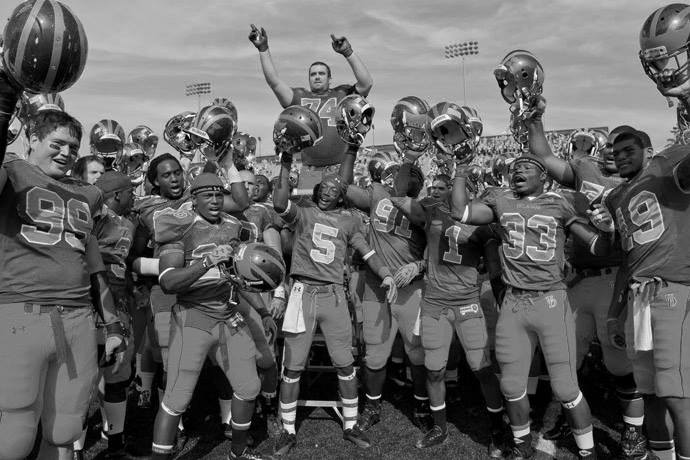How Title IX is Changing College Sports
March Issue: Social Justice
Sports have become a major part of our society, whether it is watching football all Sunday, or celebrating after the US Women’s National team won the World Cup. Although many consider themselves die-hard sports fans, most probably do not know about Title IX, a major turning point for the history of sports. Title IX is a law that states that no person shall be discriminated by their sex regarding participating in sports or other activities when federal funding is involved. In many cases, this concerns sports teams in colleges, especially female teams, or lack thereof. Although female college sports may not be considered as popular as male college sports, Title IX is helping to reach equality between sports and sexes.
Though Title IX is a national law, most people do not realize the effects that it has on their surrounding communities. For example, the University of Delaware made changes to their sports programs because of this law in 2011. The college decided to denounce their men’s track and cross country teams to club level to stay in line with the law, since they did not have a female team to keep the equality. However, this action caused a reaction the school was not expecting; some of the men on these teams complained that Title IX was hurting college sports instead of helping them and that they felt targeted because they were males. The most interesting piece of all this is that after the University of Delaware realized there was an inequality in running teams, they just cut the men’s team to be able to achieve that equality. Title IX also had a positive effect on the university, however. Instead of cutting the men’s golf team, the university decided to add a women’s golf team to the sports program. Simone Veale ’17, who is going to play field hockey in college, comments, “I think it is important to have it because it recognizes that women’s sports are just as important as men’s. With that said, I still think that men’s sports are more supported by the school and admissions. I know that in terms for recruiting, women are typically held to a little higher standard in order to be recruited. I do understand that this is always not this case, it just depends on the school. I also think that it is sad that Title IX has required some colleges to cut certain men’s sports, like wrestling.” With these two decisions that the University of Delaware has made regarding the Title IX law, it has raised questions about the law whether or not it is beneficial to sports teams.
Title IX of the Education Amendment of 1972 was signed over forty years ago, but the debate on whether this amendment should have been signed in the first place or not still continues. Most of the concern over Title IX is because there are sports that only males play, and sports that only women play. Jenny Kielhorn ’17 comments, “I think that it is difficult to say if this helps or hurts equality, because yes it has created sports teams for women, but it has also gotten rid of men’s sports teams like wrestling, which women don’t even play.” For example, the University of Delaware had to denounce their wrestling team as well, simply because females generally do not compete in wrestling; the school has to get rid of the team just to keep equality and stay in line with the law. The question is, should these teams have to be eliminated even though the opposite gender does not compete in the sport anyway? This law has thought to help females and be very beneficial, but harmful to men. This is debated over because that should not be the way we achieve gender equality in collegiate level sports. Carolyn Connors, head of the girl’s basketball team and former college athlete, expresses, “Title IX has certainly contributed to an expansion of women’s high school and college sports. Before Title IX, athletic scholarships for women were practically non-existent. However, the data shows that at the college level, female athletes continue to receive fewer opportunities and less money in scholarships than their male counterparts. So despite the gains, we still need to keep pushing and working towards leveling the playing field.” Obviously, the debate over Title IX will seem to continue as long as there are college sports.
Overall, Title IX has been beneficial for college sports, yet controversial due to the amount of men’s teams that have been denounced or gotten rid of in order for a university to comply to the rules. Although the law was put in place to create equality between sexes, stating that there would not be discrimination based on gender regarding educational activities, most think that it has created more problems than it has solved. Men’s sports teams everywhere are upset that their teams are getting cut, but women’s teams are excited by the teams that have been added. However, the debate about whether this law should be in place or not will continue to be an argument due to the inequality there is between sexes when it comes to sports teams.


































